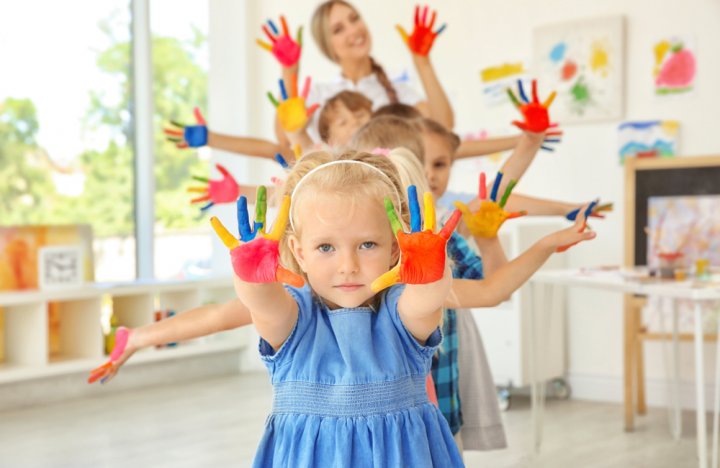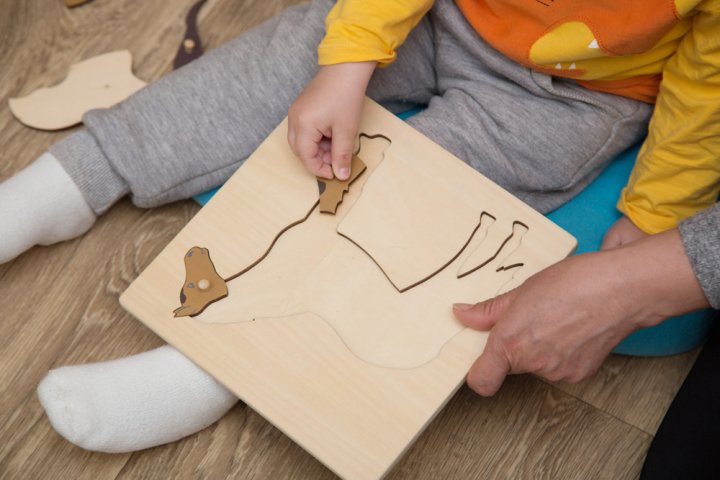-
 Conduct Video Conferences and Online Classes Seamlessly with Google Meet: Learn How to Install and Use the Google Meet App, Plus Must-Have Add-ons to Derive Maximum Benefit from This Awesome App (2020)
Conduct Video Conferences and Online Classes Seamlessly with Google Meet: Learn How to Install and Use the Google Meet App, Plus Must-Have Add-ons to Derive Maximum Benefit from This Awesome App (2020)
-
 Easy, Healthy and Portable Snacks for Kids(2020)? Yum's the Word! 10 Healthy Snacks for Indian Kids
Easy, Healthy and Portable Snacks for Kids(2020)? Yum's the Word! 10 Healthy Snacks for Indian Kids
-
 Kid-Approved Healthy Snacks for Kids for School! 10 Recipes for Healthy Snacks Your Kids Will Actually Love (2020)
Kid-Approved Healthy Snacks for Kids for School! 10 Recipes for Healthy Snacks Your Kids Will Actually Love (2020)
The Preschool Conundrum

Preschools get the kids on the academic path. They get used to the structured environment of a kindergarten. Kids also meet and interact with their peers for emotional and social development. But, on the other hand, kids lose a lot of free time, something that the parents enjoyed when they were young. Getting the kids to learn numbers and letters this early might harm them later. Few kids develop aggressive behaviour and are restless.
How to Choose a Preschool: Main Factors to consider

Identifying a preschool is quite a daunting task since it is the stepping stone for formal education. As a parent, you are looking for schools that get the children ready for a school setup while kindling their creative energy. Be sure to ask these questions before you enrol your child.
- What is the Education and Experience of Teachers?
Even though it is a preschool, the teachers should be appropriately certified. The qualifications change from state to state, but certain aspects of the training remain the same. The teachers should have been trained in early childhood education. Teachers' assistants and other staff need not have a formal education but should be good with the children. - How are the Kids Disciplined?
Discipline is part of a child's growth, but it should be in a positive tone. This encourages positive behaviour in the class. Make sure to ask about the disciplinary measures taken in the class. How do they respond to aggressive behaviour? How do they work out fights between children? Do they have a star chart for enforcing positive behaviour? These are some of the questions you should have an answer to. Enquire with the school if you can observe the teacher in class. This gives you an idea about the teacher's interaction with the children and the relationship between them. - How Many Kids are There in Each Classroom?
Preschool kids are at an age where they benefit from a one-one interaction with the teacher. The number of children vs. teachers in the class decides if the kids get any individual attention. Enquire with the school about the student-to-teacher ratio. Ask for the number of teacher assistants in every class.
Also, check if the children get any mixed-age time with older kids. Or if the classes are segregated by age. Kids in mixed-age groups benefit from having to interact with kids older than them. Younger kids get to learn from older kids, and the older kids benefit from guiding the little ones. - Do They Involve in Outdoor Activities?
In an environment where the academic activities are given importance, free time, and creative play are lost. If playtime is as important as numbers and letters, make sure your preschool encourages play-based learning. Not all schools have plenty of free time and a long recess. Few are quite academically structured.
Outdoor play is essential for children at this age. Make sure the preschool has plenty of outdoor time and learn from being in nature. The outdoor area is significant, and it decides how much of the education is play-based.
Choose Among the Best Preschool Curriculums for Your Little One

As you get into selecting preschools, you quickly realise that there are much more to preschools including different curriculums and diverse teaching methods. There are major curriculums in India with varying levels of popularity. All these curriculums discourage tests and assessments.
Montessori

Montessori was developed by the Italian physician and educator, Maria Montessori. Montessori schools have a child-centered education where the teachers guide the children to learn at their own pace. The Montessori curriculum promotes hands-on learning and fosters the child's creativity. Parents are also encouraged to let the children do simple tasks at home.
The children are usually in a multi-age grouping with older and younger children in the same group. Kids of all ages are encouraged to learn from one another. Teachers in such schools should have an undergraduate or graduate degree specializing in childhood development and Montessori certification.
Waldorf

Waldorf curriculum is based on the teachings by Austrian philosopher Rudolf Steiner. It discourages the use of media in learning, nor do they give homework or tests. The kids spend a lot of time outside and engage in free play, creative play, and group activities. The teachers encourage individualism and discover the child's innate ability. The children are then guided accordingly.
The Waldorf approach follows topic-based learning, where the same topic is taught across all subjects. The children get involved in practical activities and cultivate an interest in learning. This curriculum is not famous in India. Less than 1% of preschools follow the curriculum. The teachers should be Waldorf certified. They are also actively involved in school management.
Reggio Emilia

The Reggio Emilia was developed in the 1940s in Italy by the teachers and parents in the region. It focuses on the child's emotional and social development. It also encourages self-exploration and self-expression. There is no defined curriculum, and the classroom progresses depending on the child's interests.
The education is mostly child-led, and the children learn through art and activities depending on their interests. Teachers take on the mentor role guiding the children to explore the world around them. Parents are expected to be involved in their child's education. Since the curriculum is tailor-made depending on the children, there is no formal structure or certification for the teachers.
PlayWay

Playway is one of the most famous curriculums in India, with every other school adopting the curriculum. It is based on the theories of Jean Piaget and Lev Vygotsky. But since how much of the learning is play-based varies, it is up to the parent to investigate and decide for themselves. In the PlayWay approach, the teachers get down with the children and engage in activities. There is no set curriculum for the PlayWay approach. Usually, preschools in India use this in conjunction with other curriculums. It encourages holistic learning where no child is left behind.
Final Checklist: Things to Consider for Deciding Preschool for Your child
Before finalizing the preschool for your little one, here are a few questions you should ask the school. The answers for these are vital to your child's development and your interests.
- Referrals
- Accreditations
- Curriculum
- Child-centred or Teacher-led
- Outdoor Space
- Child Safety
- Pickup and Drop Safety Measures
- Nap Times
- Meals and Snacks
- Potty Training
-
 10 Stunning Birthday Cakes for Girls in 2020: Must Have Cake Designs She'll Fall in Love with and Where to Buy Them Online
10 Stunning Birthday Cakes for Girls in 2020: Must Have Cake Designs She'll Fall in Love with and Where to Buy Them Online
-
 Searching for Healthy Evening Snacks Options for Kids? Check out These Easy-to-Prepare yet Delicious and Healthy Snacks Recipes to Satiate Your Kid's Hunger (2020)
Searching for Healthy Evening Snacks Options for Kids? Check out These Easy-to-Prepare yet Delicious and Healthy Snacks Recipes to Satiate Your Kid's Hunger (2020)
-
 Entice Your Picky Eater Child with our Kid-Friendly Recipes: 10 Easy Recipes for Kids to Enjoy!
Entice Your Picky Eater Child with our Kid-Friendly Recipes: 10 Easy Recipes for Kids to Enjoy!
-
 10 Best Indian Snacks for Kids to Satisfy the Taste Buds of Your Children in 2020 and Also Offer a Good Amount of Nutrition to Keep Them Energized and Satiated for Long.
10 Best Indian Snacks for Kids to Satisfy the Taste Buds of Your Children in 2020 and Also Offer a Good Amount of Nutrition to Keep Them Energized and Satiated for Long.
-
 Eggs Are Among the Healthiest Foods on Earth. Discover 10 Simple Egg Recipes for Your Kids and Amazing Health Benefits of Having Eggs (2020)
Eggs Are Among the Healthiest Foods on Earth. Discover 10 Simple Egg Recipes for Your Kids and Amazing Health Benefits of Having Eggs (2020)
The Teachers Are Probably the Most Crucial Factor!
Don't forget to enquire about the teachers and their experience teaching and working with the children. An experienced teacher understands the needs of the children and helps them grow. The turnover rate of the preschool is also of importance. High turnover rates speak of unhappy teachers who you really don't want to teach your children.


 Highlight the Best Facets of Your Incomparable Beauty: Discover the Best Face Highlighter Currently Available in India and Everything You Need to Know About Using Face Highlighters for Maximum Effect (2023)
Highlight the Best Facets of Your Incomparable Beauty: Discover the Best Face Highlighter Currently Available in India and Everything You Need to Know About Using Face Highlighters for Maximum Effect (2023)
 Forget the Blemishes and Get that Picture Perfect Flawless Radiance on Your Face: Check out the Best Foundations for Oily Skin Currently Available in India and Everything You Need to Know About Makeup Foundations (2023)
Forget the Blemishes and Get that Picture Perfect Flawless Radiance on Your Face: Check out the Best Foundations for Oily Skin Currently Available in India and Everything You Need to Know About Makeup Foundations (2023)
 Make Your Presence Felt Wherever You Go: Discover the Best Perfumes Under 2000 for Both Men and Women to Announce Your Arrival and Make Any Occasion Memorable (2023)
Make Your Presence Felt Wherever You Go: Discover the Best Perfumes Under 2000 for Both Men and Women to Announce Your Arrival and Make Any Occasion Memorable (2023)
 Protect Your Oily Skin from the Harmful Rays of the Sun: Discover the Best Gel Based Sunscreens for Oily Skin and Everything You Need to Know Before Buying One (2023)
Protect Your Oily Skin from the Harmful Rays of the Sun: Discover the Best Gel Based Sunscreens for Oily Skin and Everything You Need to Know Before Buying One (2023)
 Minor Blemishes and Wrinkles Affecting Your Confidence? Check out the Best BB Creams to Conceal Your Worries and Nourish Your Skin to Restore the Healthy, Radiant and Glowing Complexion Back Again (2023)
Minor Blemishes and Wrinkles Affecting Your Confidence? Check out the Best BB Creams to Conceal Your Worries and Nourish Your Skin to Restore the Healthy, Radiant and Glowing Complexion Back Again (2023)
